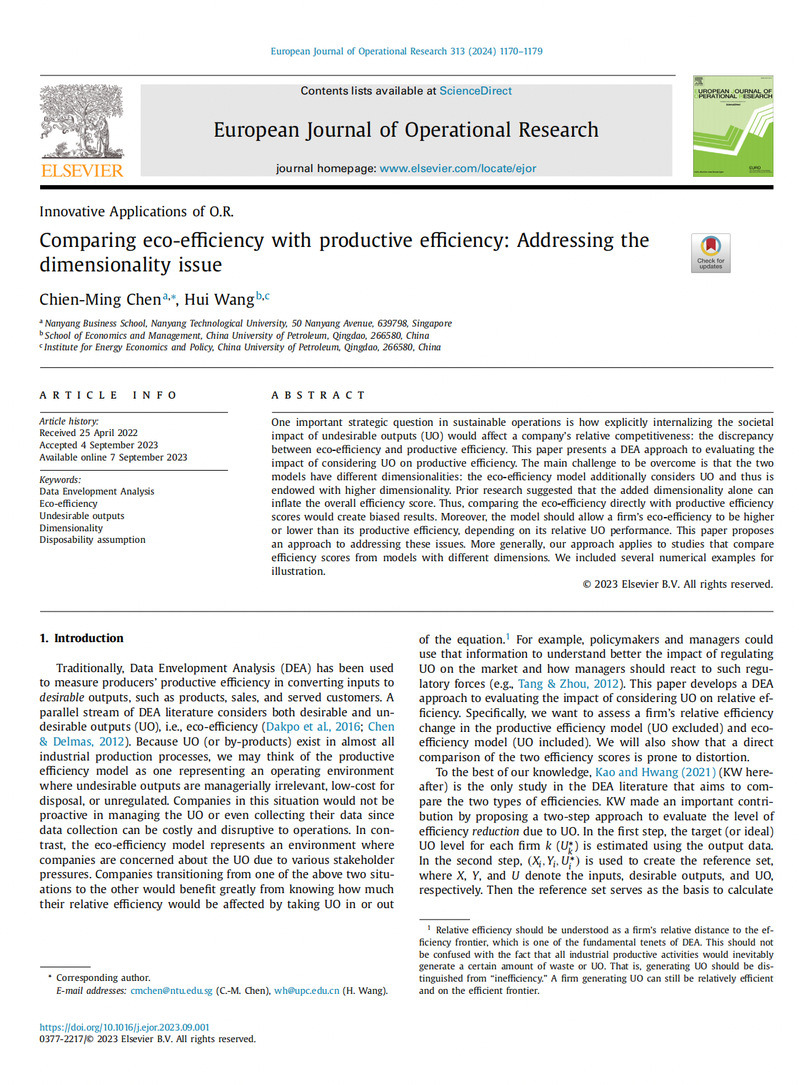One important strategic question in sustainable operations is how explicitly internalizing the societal impact of undesirable outputs (UO) would affect a company's relative competitiveness: the discrepancy between eco-efficiency and productive efficiency. This paper presents a DEA approach to evaluating the impact of considering UO on productive efficiency. The main challenge to be overcome is that the two models have different dimensionalities: the eco-efficiency model additionally considers UO and thus is endowed with higher dimensionality. Prior research suggested that the added dimensionality alone can inflate the overall efficiency score. Thus, comparing the eco-efficiency directly with productive efficiency scores would create biased results. Moreover, the model should allow a firm's eco-efficiency to be higher or lower than its productive efficiency, depending on its relative UO performance. This paper proposes an approach to addressing these issues. More generally, our approach applies to studies that compare efficiency scores from models with different dimensions. We included several numerical examples for illustration.
主要创新点:
1.提出了一种比较生产和生态效率的新方法。
2.该方法可反映考虑非期望产出对相对效率排名的影响。
3.该方法可扩展应用于比较模型不同维度的分数。

原文链接:https://doi.org/10.1016/j.ejor.2023.09.001
Edited: Xie Danyang



